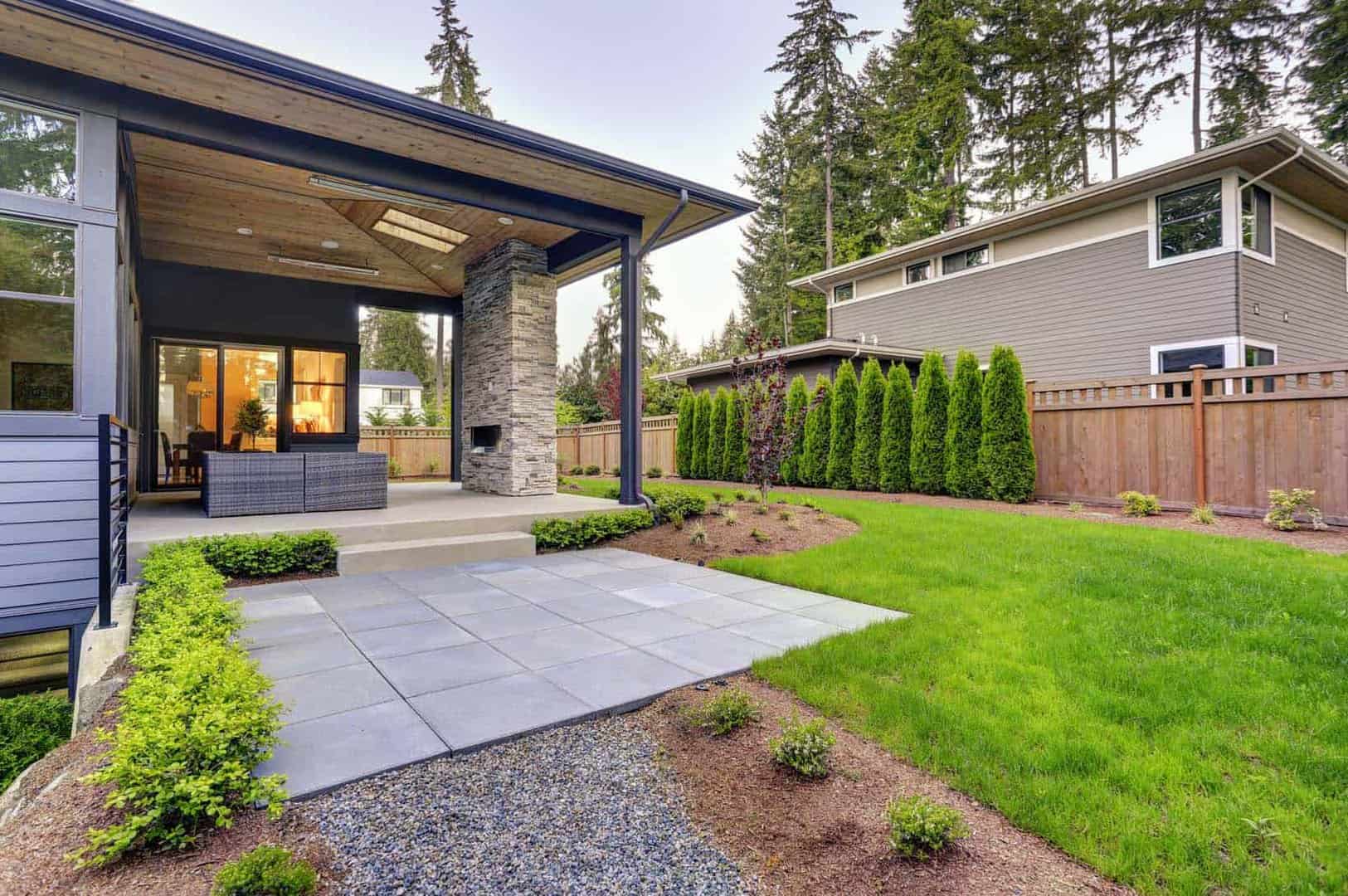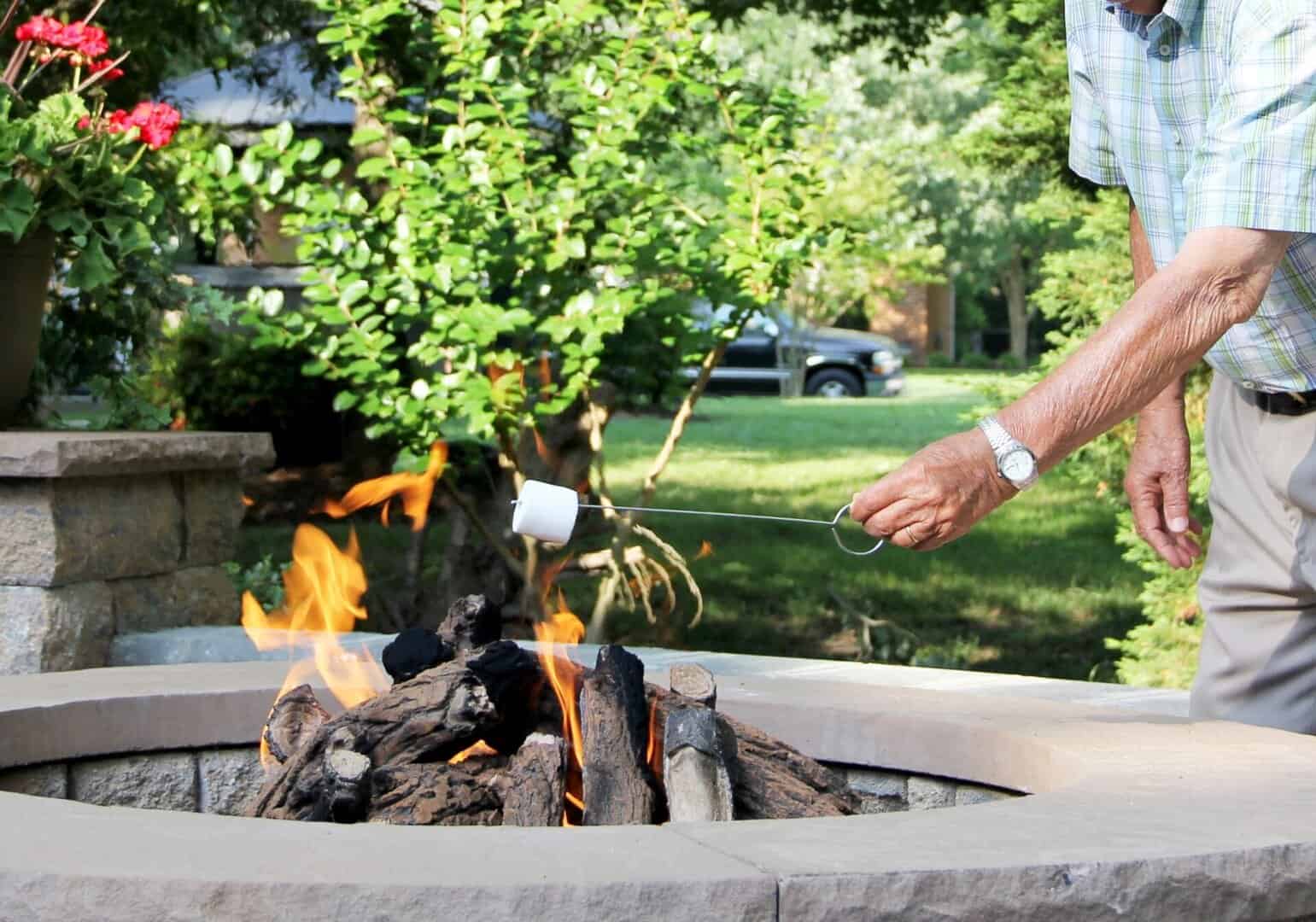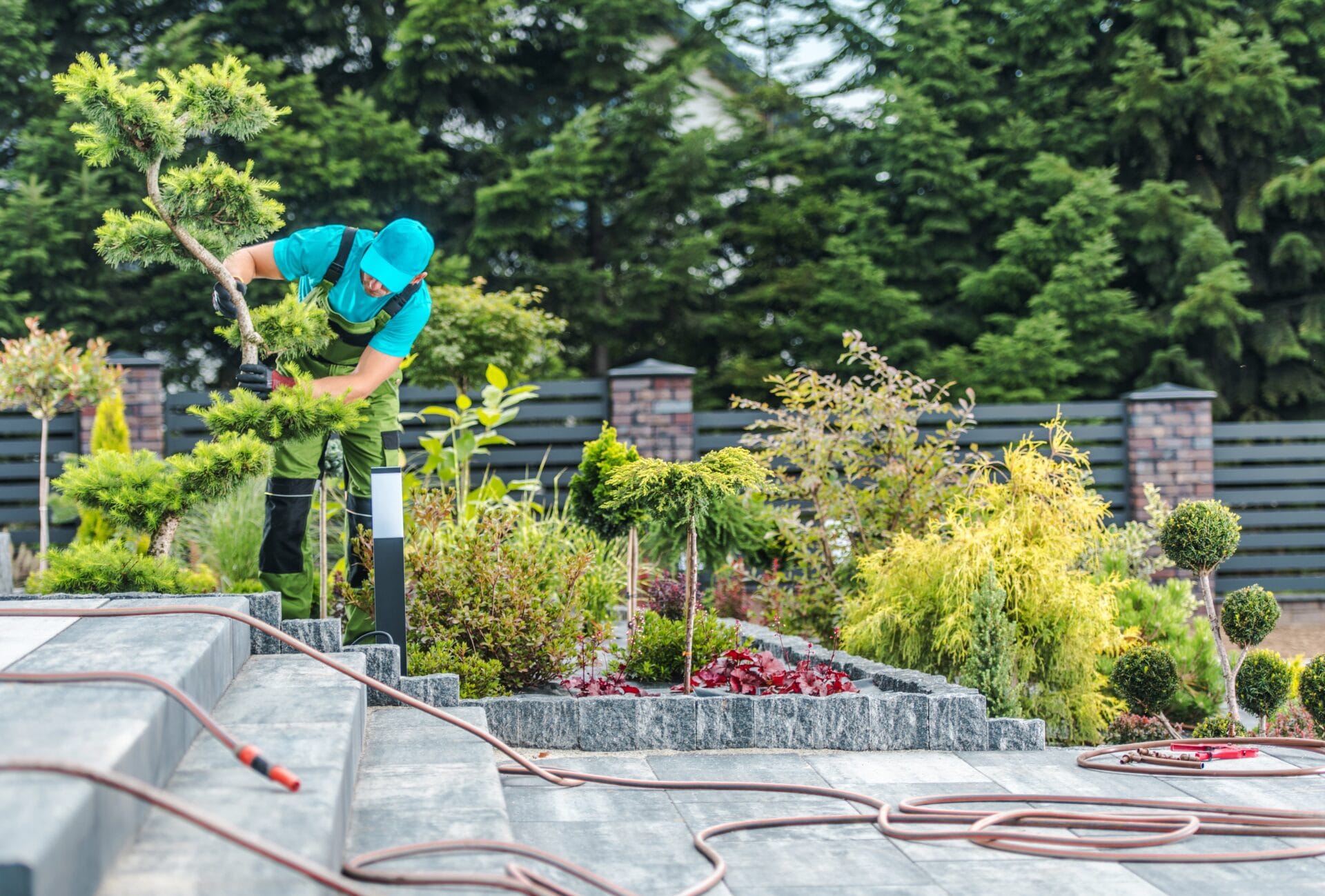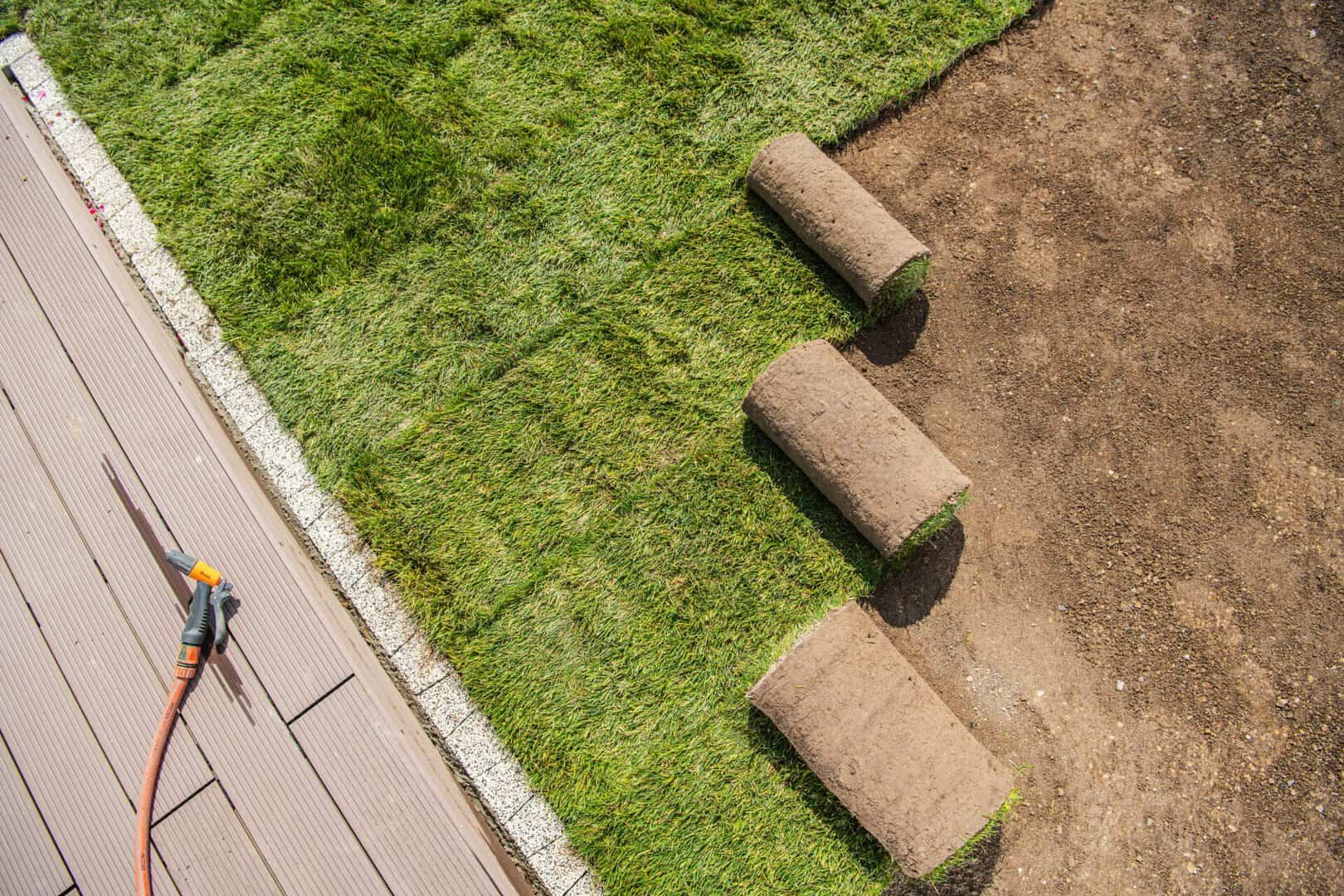How To Add Water Features In Los Angeles
Water Features in Los Angeles are some of the most highly sought after hardscaping features available today. They provide not only aesthetic benefit, but studies have shown that the sound of moving water can do wonders for people with high anxiety or stress. Unfortunately, many people believe that water features are outside of their price range, or require back breaking work to install or maintain. As with anything else you add to your home, there are certain types of water features that come with a substantial price tag or intensive maintenance requirements, however, many options for water features are more economically feasible, and require less maintenance than you might think. Water Features In Los Angeles can be installed by All County Landscape Hardscape.
This article discusses various types of water features, their space and maintenance requirements, and a few pros and cons of each type of water feature.
What are water features?
In landscape architecture and garden design, a water feature is one or more items from a range of fountains, pools, ponds, cascades, waterfalls, and streams.
Types of water features include:
- Ponds
- Natural Ponds
- Fish Ponds
- Container Ponds
- Waterfalls
- Pondless waterfalls
- Pond Waterfalls
- Retaining wall Waterfalls
- Streams
- Fountains
- Bubbling Rock Fountains
- Wall Fountains
Ponds
There are three main types of ponds, and all of them serve vastly different purposes and have vastly different installation and maintenance needs.
1.) Container Ponds
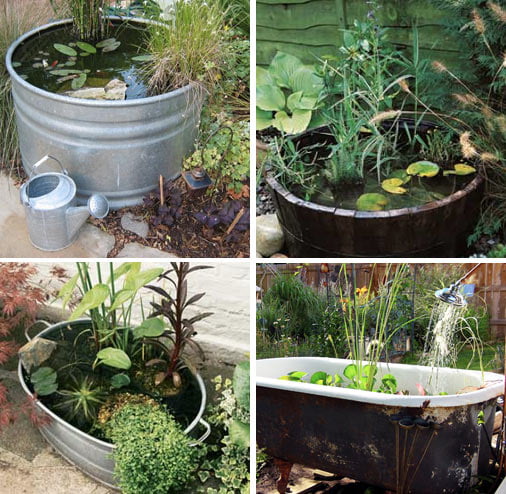
Container Ponds are an amazing choice for Water Features In Los Angeles. They require the least maintenance and have the least work associated with their installation than any other type of pond. They can be made of any water-tight material and can vary in size from a simple pot all the way up to the size of an above ground pool. Be creative when selecting a container. Dont limit yourself to what you have already seen.
Anything that is, or can be waterproofed can work. Whiskey barrels, troughs, bird baths, lotus bowls, basins, wooden boxes… almost anything goes! Even wood boxes will work when lined with a EPDM liner. These liners are fish-safe and are available at home centers and aquatic gardening shops. You can also find a brush-on sealant made specifically for aquatic gardening.
Pros:
- Does not require digging to install
- Can be as large or as small as you would like
- Low Maintenance
- Good for small spaces
Cons:
- Can be difficult to clean deep containers
- Can pose a drowning risk to children
- Container ponds without pumps (moving water) are possible breeding grounds for mosquitoes and algae
2.) Natural Ponds
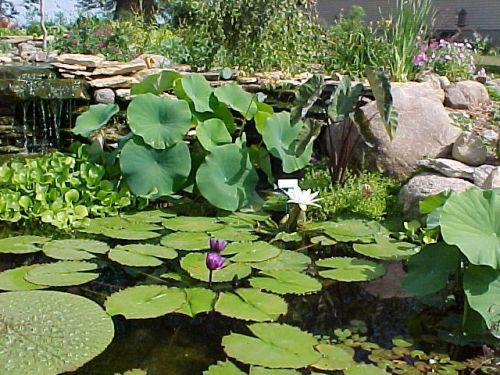
Natural Ponds require a little more maintenance than container ponds, but the biggest difference between natural ponds and container ponds is the installation process. These water features are generally built by digging a hole in the ground and lining that hole with a rigid or flexible liner. These natural ponds can be converted to fish ponds, and can vary in size from a small, shallow pond all the way up to as large as you would like them. Natural ponds blend seamlessly into the surrounding landscape and look as though they occur naturally. The limitations depend completely on budget and how much maintenance you are willing to do. Natural ponds can be kept clean with the installation of a submersible pump or filter, and often times incorporate some kind of water feature to drown out the sound of the filter such as a fountain or waterfall (as seen above)
Pros:
- Aesthetically beautiful
- Depending on size of the pond, installation can be simple
- Great for growing water loving plants
Cons:
- Can pose a drowning risk to children
- Large Ponds require substantial digging to install
- Keeping a large pond algae-free can be a challange
3.) Fish Ponds:
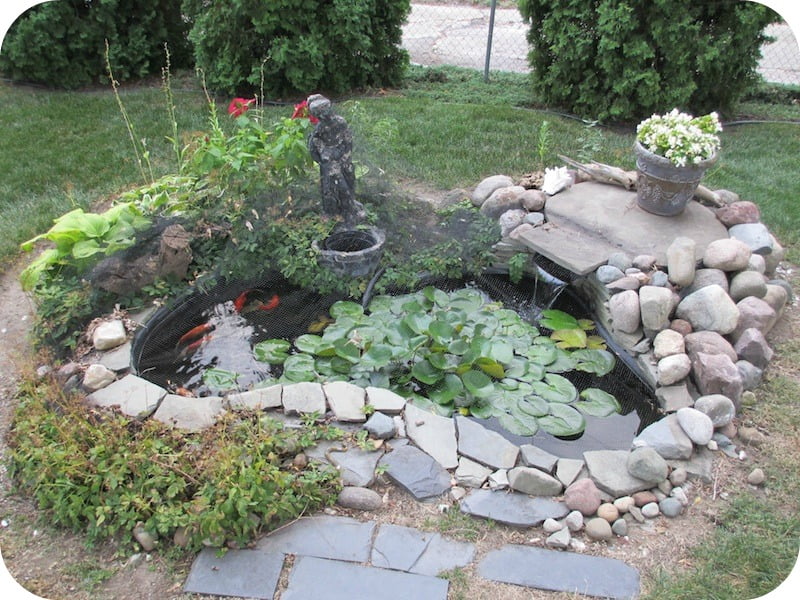
Fish Ponds share all of the features of both types of ponds, but require special maintenance in order to be a safe and comfortable environment for fish. Most often times, koi or goldfish are used in these types of ponds because those types of fish are not inherently delicate and are more resilient to changes in water tempurature, and oxygen content than other fish.
Pros:
- Can be as large or small as you would like
- Aesthetically beautiful
- Generally easy to install
- Many people find fish ponds to be very relaxing
Cons:
- Require special maintenance to preserve fish life
- Need special consideration during winter seasons
- Can pose drowning risk to small children
Waterfalls:
There are a few different kinds of waterfalls, the three main types being pond waterfalls, pondless waterfalls, and retaining wall waterfalls. Waterfalls are a great addition to other types of water features, and add virtually no maintenance to an already existing water feature. These Waterfalls provide that relaxing sound of water moving, and make your garden a relaxing oasis. Another advantage of waterfalls is that they often come in pre-made kits so installation can be a breeze.
1.) Pond Waterfalls:

This is the standard- it is what most people picture when they hear the word waterfall. They provide a relaxing sound and work by recycling water which is pumped from the pond to the top of the waterfall then released through a valve.
Pros:
- Waterfalls help to oxygenate ponds
- Moving water discourages growth of algae and mosquitoes
- Various Styles available
- Add little maintenance to an existing pond water feature
Cons:
- Can require substantial installation effort
- Can take up a lot of space
- Require Special Maintenance during winter
2.) Pondless Waterfalls:
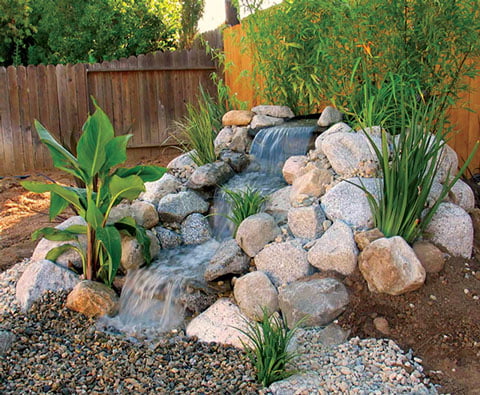
Growing in popularity, pondless waterfalls provide many of the benefits of pond waterfalls with the added bonus of requiring less maintenance. Pondless waterfalls need less space than their pond-having counterparts and pose less of a drowning risk to families with small children.
Pros:
- Little to no maintenance (just refill the reservoir every few weeks to compensate for water evaporation)
- Less Cost to run than pond waterfalls
- Require less space than standard waterfalls
- Provide relaxing sound of water moving
Cons:
- Difficult installation process because they require a lot of digging plus gravel
- Not as plant-friendly as pond water falls
- Although there is low maintenance, in the event there is a problem with the pump, you basically have to dig up and replace the entire water feature
3.) Retaining Wall Waterfalls:
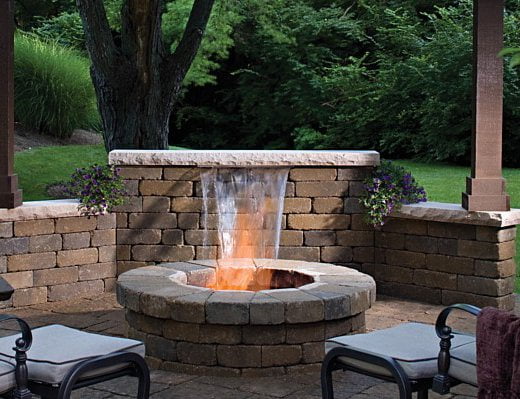
These waterfalls are generally recommended only if you already have an existing retaining wall in which they can be installed. They come in a wide variety of shapes and sizes, and unlike natural waterfalls, can also come in pre-made kits. They can be used both with and without ponds, and look stylish and modern.
Pros:
- Can come in pre-made kits
- Low Maintenance
- Can be added to an existing hardscape feature
- Pose little to no drowning risk if pondless feature is used
Cons:
- Installation can be both difficult and costly
- If you dont have a pre-existing retaining wall, you have to incorporate one into your landscape design
- Limited in where they can be used in a garden
Streams:
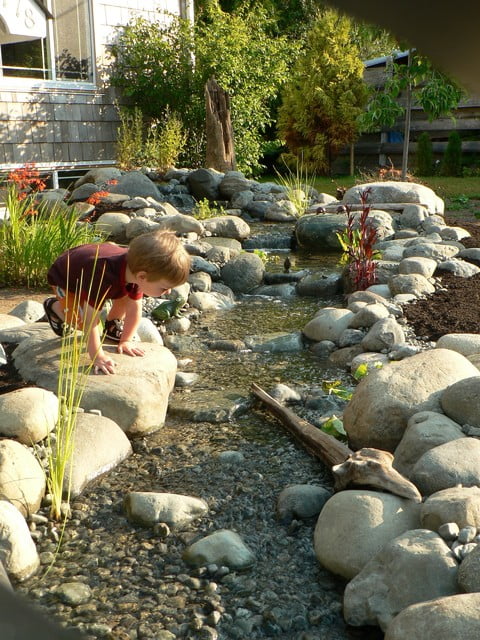
If you have a large yard, then adding a stream can transform your yard into a water garden oasis. Streams are highly versatile in their designs and provide truly relaxing sounds while encouraging the growth of plants and really adding beauty to any yard.
Pros:
- Perfect for informal landscapes
- Can add a natural look to an already existing water feature
- You can make streams look more natural by adding river rocks or water loving grasses around them.
Cons:
- They require a lot of space
- Most streams are a minimum of 15 feet, which means a lot of digging to install
- The pump system must be installed underground the entire length of the stream
- Very costly to install
Fountains:
Fountains are a great addition to any home, and the size and variety they come in means that fountains are some of the most versatile types of water features available on the market today. They require almost no maintenance and are great for people who are just wanting to have a trial run of what having a water feature is like. Most often times, fountains come in pre-manufactured kits and the cost to install can be nothing depending on the type of fountain you purchase.
1.) Bubbling Rock Fountains
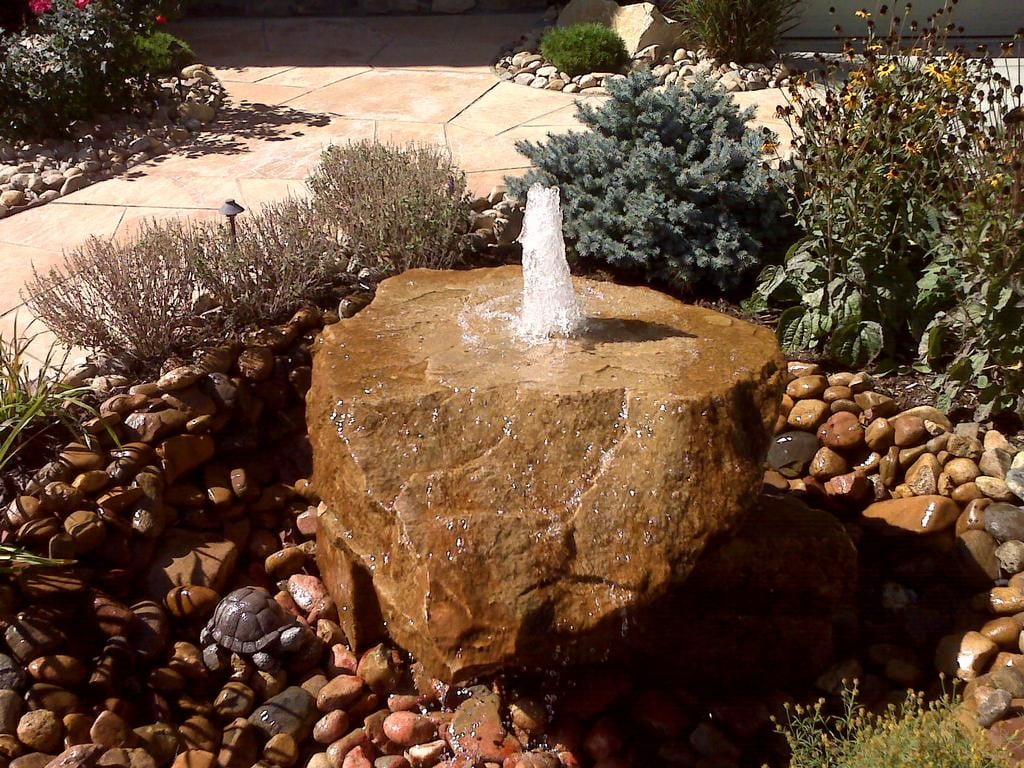
Bubbling Rock Fountains are the most common type of fountain installed in landscapes today. They have the advantage of both providing a natural looking water feature, and soothing sounds without requiring the maintenance of a pond. These fountains come in a huge variety of shapes and sizes and often times come in pre-fabricated kits. They can be used both with or without a pond, and because you control the pump mechanism, you can control the energy they use.
Pros:
- Can Come in ready-made, plug in kits
- Little to no maintenance other than refilling a reservoir
- Provide the sound and beauty of a waterfall without the extensive installation process
- Great for small spaces
Cons:
- Pondless fountains still require substantial digging to install
- Pre-made kits may not allow you to determine the amount of water which flows through the rock
- Still require pump system which can be hard to keep out of sight
2.) Wall Fountains:
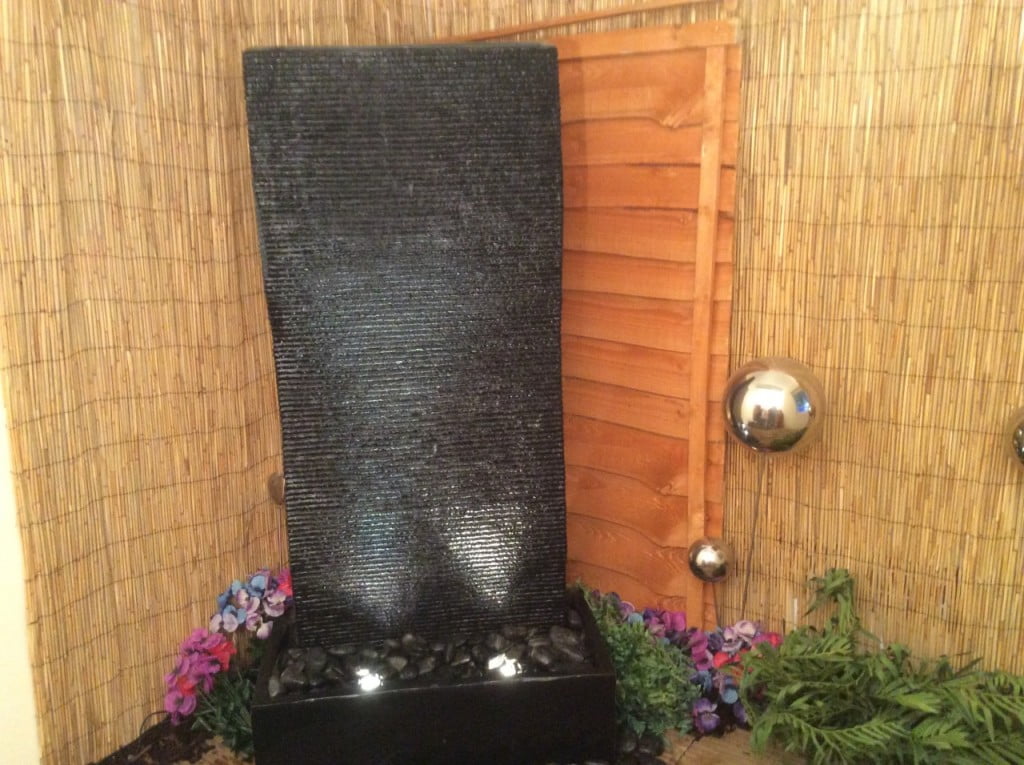
Wall Fountains can be used in conjunction with already existing water features, or can act as a stand alone feature. Generally speaking, wall fountains tend to come in pre-made kits so design options can be limited.
Pros:
- Great for compact spaces
- Little to no maintenance
- Can be used indoor or outdoors
- Come in ready-made kits
- Pose little to no drowning risk for small children
Cons:
- Pre-made kits offer fewer style options
- Can be difficult to incorporate into pre-existing water features
- Repair is often difficult- generally need to be replaced if problems come up
- Don’t provide soothing water sounds at the same volume that free flowing water features provide
Water features are a great addition to any landscape design. When choosing what type of water feature to incorporate, make sure to do a little research on the cost to install and maintain it. Water features add aesthetic beauty as well as comforting sounds which can transform any back yard into a garden oasis. Water Features In Los Angeles are a great way to spruce up your backyard.

